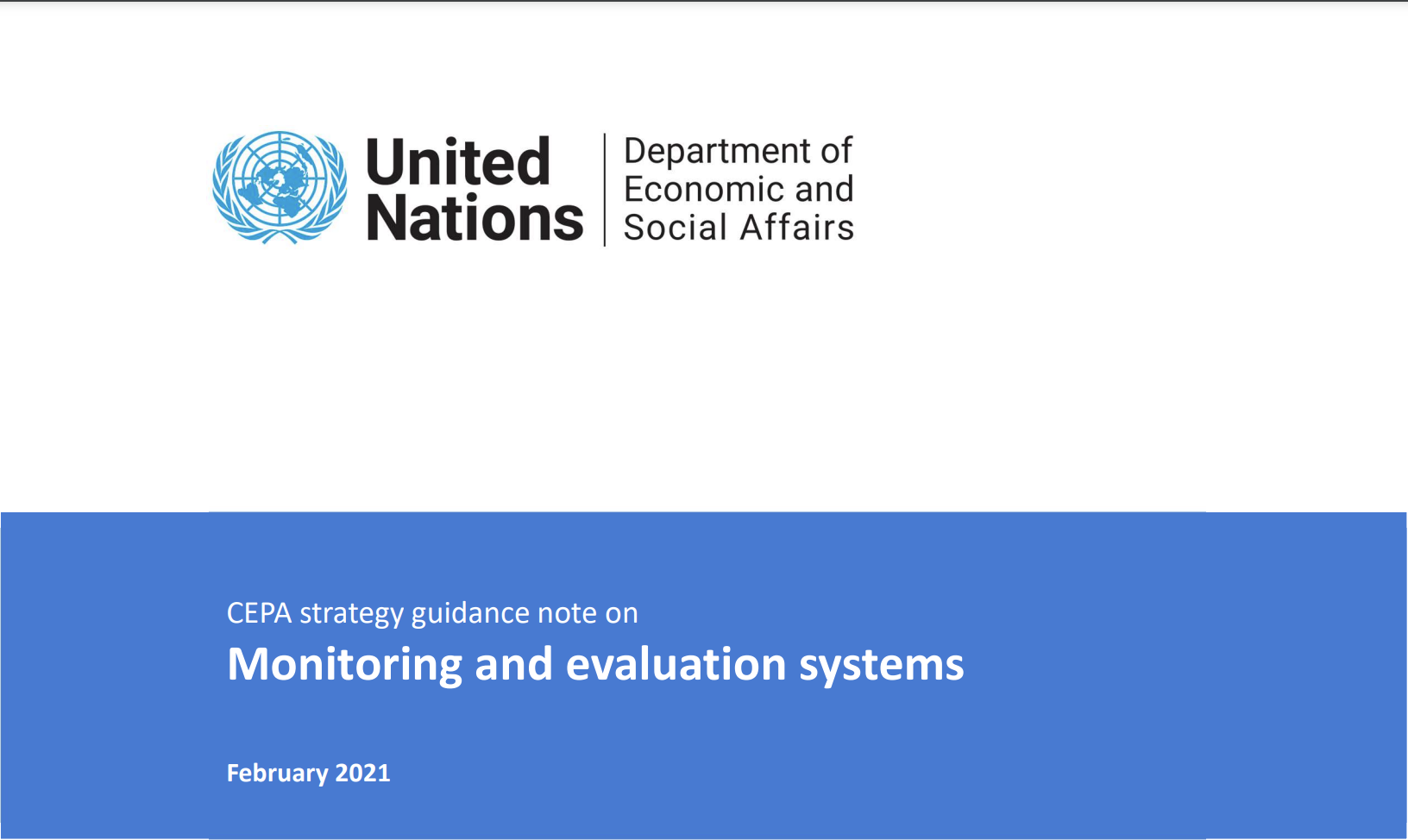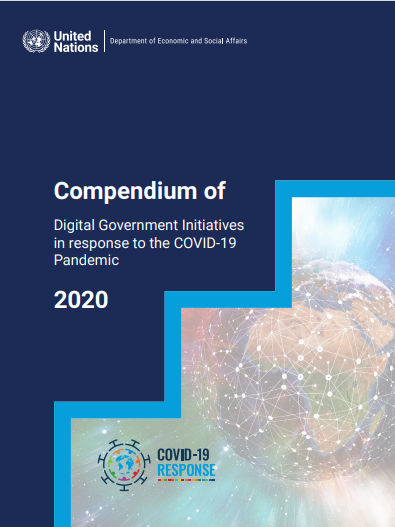| CEPA Strategy Guidance Notes | Principles of Effective Governance
CEPA strategy guidance note on science-policy interface
The United Nations Committee of Experts on Public Administration (CEPA) has developed a set of principles of effective governance for sustainable development. The essential purpose of these voluntary principles is to provide interested countries…
| CEPA Strategy Guidance Notes | Principles of Effective Governance
CEPA strategy guidance note on monitoring and evaluation systems
The United Nations Committee of Experts on Public Administration (CEPA) has developed a set of principles of effective governance for sustainable development. The essential purpose of these voluntary principles is to provide interested countries…
| CEPA Strategy Guidance Notes | Principles of Effective Governance
CEPA strategy guidance note on strengthening of national statistical systems
The United Nations Committee of Experts on Public Administration (CEPA) has developed a set of principles of effective governance for sustainable development. The essential purpose of these voluntary principles is to provide interested countries…
| Policy Briefs | Digital Government
UN/DESA Policy Brief #92: Leveraging digital technologies for social inclusion
Leveraging digital technologies for social inclusion
Key messages
COVID-19 is accelerating the pace of digital transformation. In so doing, it is opening the opportunities for advancing social progress and fostering social inclusion, while…
| CEPA Strategy Guidance Notes | Sound Policymaking | Principles of Effective Governance
CEPA strategy guidance note on promotion of coherent policymaking
The United Nations Committee of Experts on Public Administration (CEPA) has developed a set of principles of effective governance for sustainable development. The essential purpose of these voluntary principles is to provide interested countries…
| CEPA Strategy Guidance Notes | Principles of Effective Governance
CEPA strategy guidance note on data sharing
Having access to reliable, accurate public-sector data is crucial for sound policymaking. Accurate data helps to answer fundamental questions on selecting proper actions, to realize intended outcomes and to achieve the overall effectiveness…
| CEPA Strategy Guidance Notes | Principles of Effective Governance
CEPA strategy guidance note on regulatory impact assessment
The United Nations Committee of Experts on Public Administration (CEPA) has developed a set of principles of effective governance for sustainable development. The essential purpose of these voluntary principles is to provide interested countries…
| CEPA Strategy Guidance Notes | Principles of Effective Governance
CEPA strategy guidance note on risk management frameworks
The United Nations Committee of Experts on Public Administration (CEPA) has developed a set of principles of effective governance for sustainable development. The essential purpose of these voluntary principles is to provide interested countries…
| CEPA Strategy Guidance Notes | Principles of Effective Governance
CEPA strategy guidance note on strategic planning and foresight
The United Nations Committee of Experts on Public Administration (CEPA) has developed a set of principles of effective governance for sustainable development. The essential purpose of these voluntary principles is to provide interested countries…
| Policy Briefs | Digital Government | Open Government Data
UN/DESA Policy Brief #89: Strengthening Data Governance for Effective Use of Open Data and Big Data Analytics for Combating COVID-19
Strengthening Data Governance for Effective Use of Open Data and Big Data Analytics for Combating COVID-19
Summary
Governments are highly dependent on all data including official statistics, administrative data, open data and big data analytics…
| Compendia | Digital Government
Compendium of Digital Government Initiatives in response to the COVID-19 Pandemic 2020
This compendium, prepared by the Division for Public Institutions and Digital Government (DPIDG) of the United Nations Department of Economic and Social Affairs (UN DESA), aims to capture emerging trends in digital responses of the United Nations…
| Policy Briefs | Transformational Leadership and New Mindsets
The Role of Public Service and Public Servants during the COVID-19 Pandemic
Key messages:
1. Comprehensive public service capacity development: Governments must pay attention to developing the capacities of the public service and public servants; be it in their numbers, their competences, values, the protective gear…
 Welcome to the United Nations
Welcome to the United Nations











